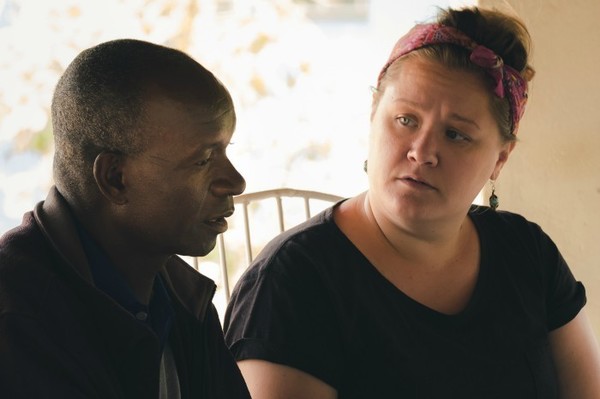

Emily Maiden, a doctoral student in peace studies and political science at the Kroc Institute for International Peace Studies, has co-authored an article appearing in the June edition of World Development that says current aid distribution in northern Mali favors French-speaking villages and doesn’t reach those most in need.
Both Maiden and Mark Brockway, the article’s co-author, are doctoral student affiliates of the Kellogg Institute for International Peace Studies.
“I can’t get invested in a research project unless I think it matters, and unless I can see how it either challenges current assumptions, helps solve a problem, or in some small way makes the world a better, more peaceful place,” says Maiden. "Whether by publishing a critical analysis of ineffective aid strategies in an active conflict zone in Mali, or teaching laugh therapy as stress management in Malawi, I am using what I am learning at Kroc to try to make a positive difference in people’s lives."
Brockway and Maiden’s article, “Parlez-vous français? Language and Agricultural Aid Allocation Strategies in Northern Mali,” says that since 2012, unrest in northern Mali–the region where most of the country’s food is grown–has dramatically altered how foreign aid is distributed.
Using 2015 World Bank survey data, Maiden and Brockway found that French-speaking villages are more likely to receive aid than non-French-speaking villages.
“We argue that in northern Mali, under the current sociopolitical conditions, speaking French makes these villages more attractive to aid organizations, regardless of their actual need for assistance,” they wrote. “This appropriation principle means that aid is not going to the most vulnerable, but to the most politically or socially connected.”
Even in French-speaking villages, they argue, the most vulnerable households aren’t guaranteed to receive aid. Their research also found that programmatic aid has been scaled back while humanitarian aid from NGOs has increased, leaving Mali’s agricultural sector vulnerable and potentially having “catastrophic effects in terms of projected food shortages.”
“If desperately needed agricultural aid continues to be misappropriated, it could lead countries like Mali to become even more unstable,” they added.
Maiden has received three grants from the Kellogg Institute to further her research and professional development, including a graduate research grant for the 2016-2017 project “We Will Marry When We Want: Ending Child Marriage in Malawi.” The grant allowed her to survey Malawi women on issues including gender roles, health, and cultural practices, and she found that many don’t know their basic legal rights or even that the country even has a constitution.
Since July 2017, she has been completing fieldwork for her dissertation in Malawi.
This article is adapted from an article originally published at kellogg.nd.edu.
About the Kroc Institute: Notre Dame’s Kroc Institute is one of the world’s principal centers for the study of the causes of violent conflict and strategies for sustainable peace. The Kroc Institute offers BA and PhD degrees in peace studies and supports the International Peace Studies concentration of the Keough School Master of Global Affairs. The Kroc Institute is an integral part of the University of Notre Dame’s new Keough School of Global Affairs.